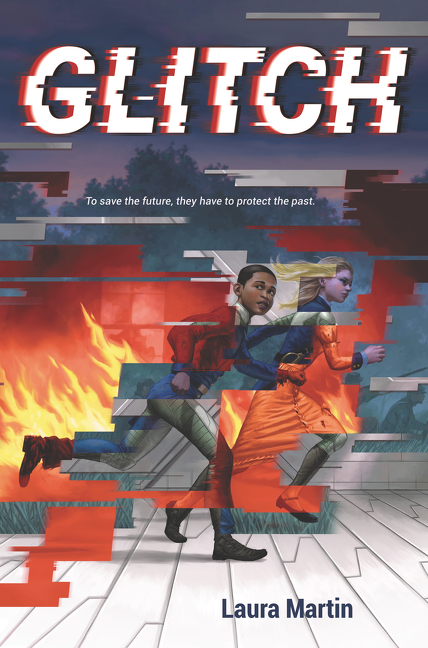Audiobook Excerpt of "Clip 1" narrated by Tara Sands and Ramon de Ocampo
Glitch |
Audiobook excerpt narrated by Tara Sands and Ramon de Ocampo.
Translate this transcript in the header View this transcript Dark mode on/off
Tara Sands: April 14th, 1865. Gosh, I was sick of that date and it wasn't just because that is when our 16th president was assassinated. Nope. I was sick of April 14th, 1865 because I kept getting sent back to it for training purposes. Although, training purposes was just code for, "You screwed up again, Reagan. Get it right this time." I materialized in the back row of Ford's Theatre for the fifth time this year, just as the play Our American Cousin began. I always materialized into seat 10B when I did this particular practice simulation. It was supposed to contain Mrs. Margaret [O'Hana 00:00:43] , but she'd gotten sick with the measles and hadn't been able to make it to the performance that night. Her change of plans had left a convenient place for time travelers, or glitters as we're called now, to slip in and out of history on the infamous night Abraham Lincoln was shot by John Wilkes Booth.
I'd see Booth momentarily, but I wasn't here to fix him. He would be allowed to murder our president without any interference from a glitter like myself. Interfering with him is against the law. Interfering with him was why I was here on a training mission in the first place. I opened my eyes and looked around. Because I'd been here countless times before, I barely noticed the immaculate and stately Ford's Theatre, the theater goers around me wearing their best dresses and suits or the smell of a generation who handled body odors by covering them up with heavy colognes and perfumes.
Even though I'd done this a lot, I still couldn't stop my eyes from automatically going up to the balcony where Mr. and Mrs. Abraham Lincoln would be taking their seats any minute. They would arrive late to the theater tonight and would be safe until the intermission when their bodyguard would decide he'd rather go sit at a saloon and have a drink instead of protecting the president. There wasn't such a thing as the Secret Service yet, although in a weird, ironic twist, Abraham Lincoln would sign the document that would create the Secret Service right before he left for the theater tonight. With some reluctance, I tore my eyes away from the balcony. I had less than 10 minutes to find the butterfly and complete the mission. It was time to get to work.
The last time I'd done this training mission, I'd immediately stood up and made my way to the lobby of the theater, sure that the butterfly would be in wait there to waylay Booth. Unfortunately, I had thought wrong. I hated this simulation. It felt 10 kinds of wrong to allow something horrendous like an assassination of arguably one of our greatest presidents, but it was all part of the job. It was why this particular simulation so important to our training. We had to learn that what we thought about right and wrong didn't matter, at least not when it came to changing history. As a glitter, it was my job to make sure things stayed exactly the way the history books described without interference from a butterfly.
The term butterfly had thrown me for a loop when I'd first heard it. It seemed too, I don't know, fluffy to describe a time traveling criminal the same way you describe a really pretty bug. I mean, a time traveling criminal is usually someone attempting to manipulate history with the full intention of screwing up the future, and there was nothing fluffy about that. But I learned quickly that the term butterfly did not come from the beautiful insects I saw landing on the flowers outside my window. Instead, it referred to the butterfly effect.
In 1963, this guy named Edward Lorenz presented a theory to the New York Academy of Sciences that a butterfly could flap its wings and set molecules of air in motion, which would move other molecules of air, in turn, moving more molecules of air, eventually capable of starting a hurricane on the other side of the planet. Everyone thought he was crazy for thinking something as small as a butterfly could start a snowball effect capable of wiping out whole cities. He was laughed at. He was called a fool, and then 30 years later they realized he was right.
This audio excerpt is provided by HarperAudio.

